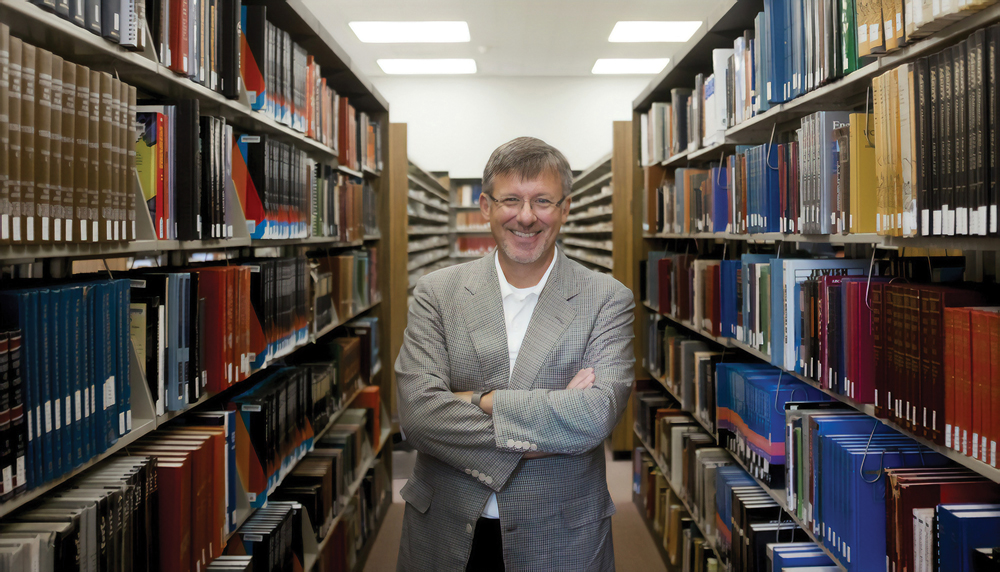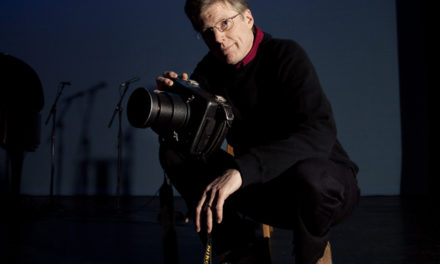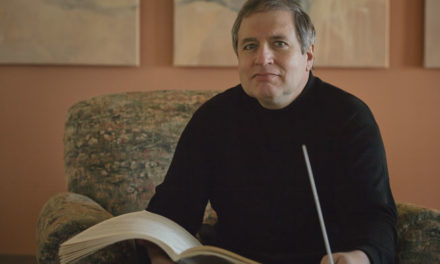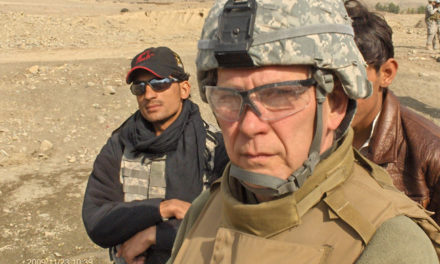
BY GREG SIERING
Most people think of dictionaries as thick volumes that lay out the definitions of words with resolute authority. But Michael Adams, provost professor of English at Indiana University, sees dictionaries as living documents, very human attempts to capture the complexity of language as it changes over time.
While Adams, 57, has contributed to more traditional lexicography (the compiling of dictionaries)—he’s worked on projects such as the American Heritage Dictionary of the English Language—some of his most engaging work studies the growth of language in popular culture, from the slang in TV’s Buffy the Vampire Slayer to the invention of languages such as Star Trek’s Klingon to The Lord of Ring’s Elvish.
Perhaps his most notable work on popular language is his 2016 book, In Praise of Profanity (Oxford), an exploration of swearing from linguistic and cultural perspectives. Adams argues that swearing isn’t a debasing of the language but can be clever and contextually appropriate. “You can use profanity as ingeniously as you can other language,” he says. Profanity serves a purpose and is sometimes the ideal utterance to capture frustration or other emotion within the right context, “when sugar won’t do the job.” When all other language just doesn’t convey that emotion, a sighed, “Well, fuck,” may be the best response possible, he says.
Adams came to Bloomington in 2006 as part of a typical academic career move with his wife, Jennifer Westerhaus Adams, a global compliance officer with Cook Group. Since then, he and his family—including son Ollie, 9, and daughter Amelia, 6—have developed a genuine love of Bloomington.
He says they appreciate its manageable size—diverse yet intimate—noting that “it’s a good place to be a neighbor.” And to someone fascinated by language use, gatherings such as the Bloomington Community Farmers’ Market double as places to listen to speakers from all walks of life.
Adams brings his love of language study home with him, fascinated with his children and their own use of language. He says he watched Amelia learn the grammatical constructs of swearing from children’s television shows at age 3, and he takes keen interest in Ollie’s adoption of slang and new phrasings. “People speak the way they do for a reason,” he says. “The same goes for kids; they deserve a careful listen, just like everyone else.” Yet he refrains from lecturing them with professorial explanations of their linguistic development. Just as when he tries to use the latest slang, he says, that just earns him eye rolls.












